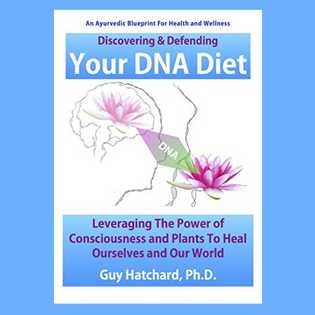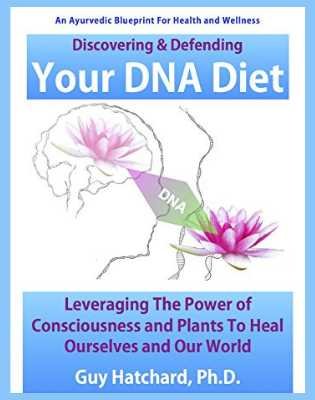The extraordinary New Zealand data of chest pain and cardiac incidence among the under forties, which has increased tenfold and remains high right up to the present, has provoked many questions and comments to our email inbox. Ranging from ‘how could the authorities let this happen’ to the ridiculous ‘the OIA doesn’t exist’ and everything in between. Making sense of the scale of the disaster is hard, and facing up to the failure and duplicity of those charged with protecting our health is even more perplexing.
This article is also available as a PDF to download, print, and share and as an audio version.
The OIA data for chest pain and cardiac events is not an isolated statistic. Medsafe have just released the results of a follow up survey of 298 NZ patients who received a clinical diagnosis of mRNA vaccine induced myopericarditis at least 90 days prior to filling in the survey. This survey was conducted two years ago. Inexplicably, Medsafe have waited until now to release the results. Contrary to earlier advice given to people experiencing symptoms of myocarditis that the final outcome would be mild and self-limiting, the survey revealed persistent serious problems beyond 90 days which had not been resolved.
“The median age was 36.5 years. 62% were male…. Chest pain was the most frequently reported physical symptom, experienced by 287 (96.3%) participants, followed by fatigue (256; 85.9%), shortness of breath (251; 84.2%), palpitations (234; 78.5%), and dizziness (189; 63.4%).. Twenty-two (7.4%) participants reported fainting.”
Representative survey responses to a range of open-ended questions about work, family life, treatment, follow up, etc included the following:
“Tried to exercise again and pericarditis symptoms returned.”
“Chest pain is extreme… not being able to walk without a cane.”
“This experience has caused anxiety and depression.”
“Before I was diagnosed, I was a full-time worker and into [sporting activity], since I got it, I can’t work at all or do any exercise.”
“Not being able to take care of my children is just awful. I can’t even kick a ball with my sons anymore.”
“I was initially told a number of times in ED that I was having anxiety attacks. I felt like no one was listening to me which made it even harder.”
“Was anxious about having the booster and I was fobbed off. I am not an ‘anti-vaxxer’. Doctors need to listen and be more empathetic.”
“Disappointed with lack of after care. Absolutely no specialist follow-up. Very disappointing.”
“Utter frustration that I had to go privately to get any help. Was told it would take one year to get any cardiac test. I would still be waiting for a diagnosis. I had to go privately.”
“To hear… myopericarditis repeatedly being reported as a mild consequence of vaccination was a huge insult and should immediately stop. This is not a mild sequela for many. This is a profound life changing and devastating event.”
“ACC – although accepting my vaccine injury treatment injury claim – decided seven days was sufficient time to recover [from it]… it took… nearly 8 months after the claim, for full cover to be approved.”
The Key Learnings section of the report admits there were deficiencies in:
- The vaccine information given to the public.
- Reporting systems for adverse reactions.
- Knowledge about possible adverse reactions.
- Keeping up to date with the implications of clinical publishing
The net effect was to create a deficient clinical and informational response to the tens of thousands of individuals reporting to GPs and emergency departments with chest pain. As a result, myopericarditis has been greatly under diagnosed or a diagnosis and clinical response has been delayed, even in some cases for years.
This is still continuing. The New Zealand Herald leads this morning with an article “Auckland man waited in Middlemore Hospital A&E in seven-hour ordeal”. A 39 year old man reported with chest pains. He was triaged and x-rayed within 35 minutes, but then waited 7 hours to see a doctor. During this time, he sat and sometimes had to stand along with hundreds of patients in the waiting room. He witnessed people sleeping on the floor, others walking out with medical tubes attached to their arm and a bleeding pregnant woman who sat on a hard chair for five hours before being seen.
The article doesn’t inform the public that the man was just one out of well over 30,000 individuals who will report to Accident and Emergency with chest pains this year, compared to just 2,000 pre-pandemic. It doesn’t tell us whether this was his first visit. It doesn’t tell us what the outcome was, whether he was referred to a cardiologist with a wait time of over a year. In other words, it leaves the public poorly informed. Despite the official data that has just come to light, it fails to correct the misleading information about vaccine-induced myopericarditis and chest pain incidence that the paper has been dutifully relaying to the public at the behest of the government and the health service for the last few years.
It doesn’t tell the public that if the man eventually secures an appointment to see a cardiologist, he will probably be asked if he is COVID-19 vaccinated and then confidentially and quietly advised to never have another shot. In contrast, while he is waiting for the appointment, he might receive numerous messages from the free-spending PR department of Health New Zealand via TV or text advising him to get another mRNA COVID-19 booster.
All because, as the Medsafe report concludes, Health New Zealand and the government are suffering from a clinical information deficit that they have failed to correct, along with an irrational faith in a so-called vaccine that doesn’t prevent disease, but rather causes it.
I don’t want to sound too harsh, but now we are aware of the astounding figures Health New Zealand has been sitting on and hiding from the public for the last few years, we have to ask serious questions about the probity of the management. They are supposed to protect and promote public health. Health New Zealand has become a medical system out of sync with reality along with a staff stretched beyond elastic limits. In other words, its left hand doesn’t know what its injured right hand is doing.
In the comments section of the Medsafe report, there were people who said they felt isolated and too socially embarrassed to even speak to their GP in case they were labelled as an anti-vaxxer and became a complete social pariah. It is easy to forget how much effort and money the government pouted into labelling the unvaccinated. They became antisocial, extremist and anti-science. They were accused of seeking to undermine democracy and overthrow the government. The government funded documentary Web of Chaos aired twice on prime time TV and remains On Demand. It complained about so-called disinformation over images of nuclear bombs exploding and Hitler making speeches.
We now know that current Health Minister Shane Reti’s plans to fix Health New Zealand by targeting reduced wait times and Science and Technology Minister Judith Collins plans to deregulate biotechnology experimentation and do away with GM food labelling, are straight out of Alice in Wonderland. Those asking questions about mRNA vaccine safety, mandates and died suddenly were right all along. The longer a public mea culpa and a stop to the mRNA COVID-19 vaccination rollout is delayed, the further Health New Zealand, the media and the government are falling down their own rabbit hole which poses a very serious danger to public health and stability.






